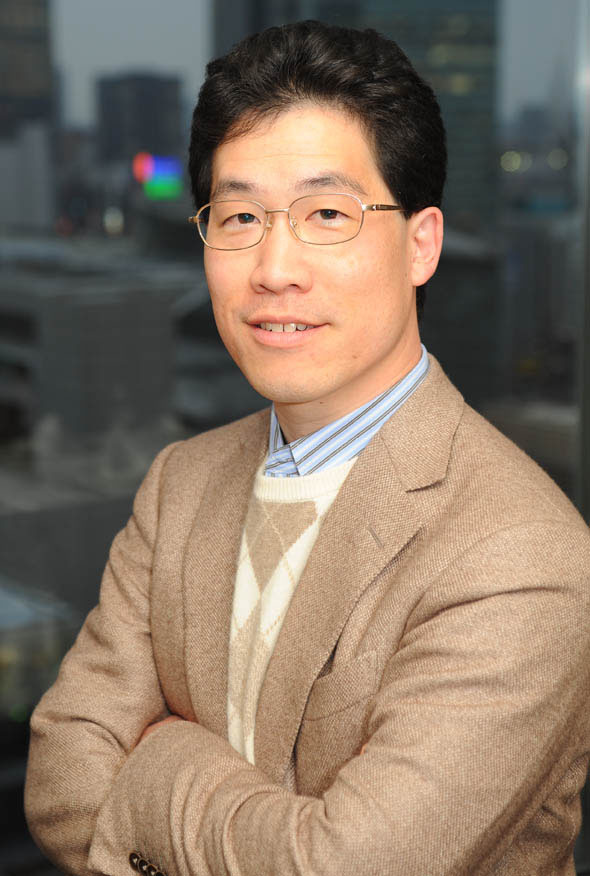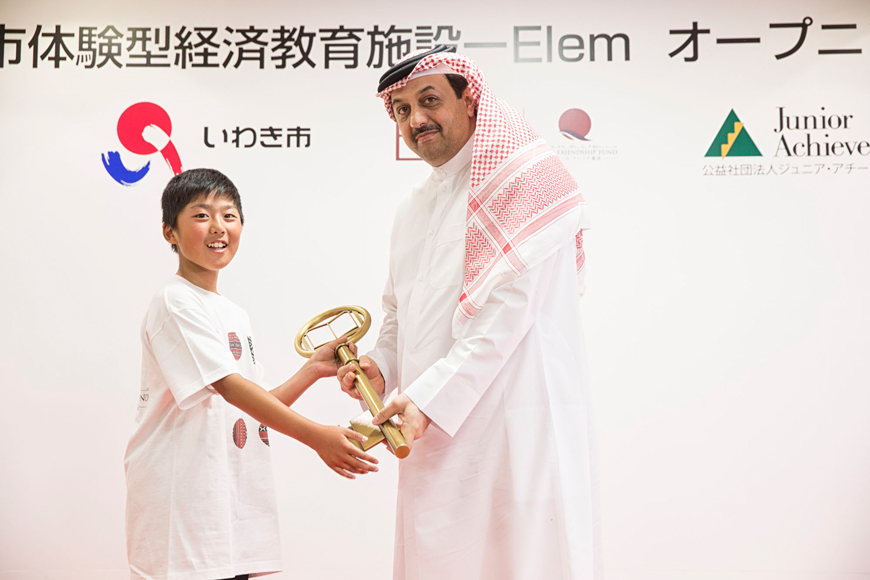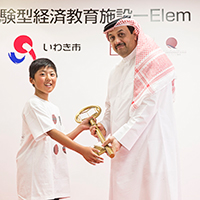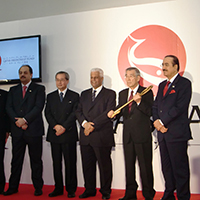The Qatar Friendship Fund (QFF) was established in 2012 following the 2011 Great East Japan Earthquake with a mission to "help restore the hopes and dreams of the victims" in Tohoku, offering financial assistance to 12 projects to that end.
Immediately after the devastating quake and tsunami, Sheikh Hamad bin Khalifa Al-Thani, then-Emir of the State of Qatar, announced a $100 million donation to Japan to aid relief work and accelerate the recovery of those affected.
Sheikh Hamad wanted to promptly reach out and do whatever his country could to help the Japanese people rebuild their lives. He also announced the formation of a 24-hour task force within Qatar Petroleum to provide necessary assistance to Japan under the direct supervision of then-Crown Prince of the State of Qatar Sheikh Tamim bin Hamad Al-Thani.
Using the donation, the fund was subsequently created at the direction of Sheikh Tamim who instructed then-Minister of Foreign Affairs Khalid bin Mohammad Al Attiyah on the launch.
The QFF, chaired by Qatar's Ambassador to Japan Yousef Bilal, was given its name to differentiate it from the more than $800 million in aid that Qatar annually offers over 100 countries. The fund also aims to build stronger ties between Qatar and Japan, whose diplomatic relations date back to 1972.
"We started the fund to show our loyalty to our friends and as a sign of the strong friendship with the people of Japan," Bilal said.
The two countries have been major trade partners, with a relationship founded primarily in the energy sector as Japan imports a significant amount of its liquefied natural gas supplies from Qatar. The bilateral ties have developed beyond the energy sector into education, technology, culture and acts of humanitarianism over the past 40 years.
Formerly affiliated with the Ministry of Foreign Affairs, the QFF is now under the Qatar Fund for Development, which strives to improve the livelihood of communities around the world by providing financial aid and empowering the public through the promotion of education, health care and economic development.
Maximizing impact
One of the priorities of the fund is to provide prompt and effective assistance as directly as possible to victims of the areas affected by the disaster, through the rehabilitation of industries and infrastructure, as well as with the construction of development projects not funded by any other sources.
Supporting projects that address urgent, crucial and sustainable needs among the Japanese to maximize its impact on the greatest number of beneficiaries, the QFF is committed to developing innovative solutions that meet the unique, social, economic and cultural challenges faced by the communities the fund works with.
In particular, the QFF focuses on the four main priority areas of children's education, fisheries, health care and entrepreneurship.
The QFF is based on its belief in the importance of children's education, enabling recipients to realize their potential and shape their future. It has strived to work with youth in communities affected by the 2011 quake to establish appropriate opportunities for them to develop the knowledge, skills and experiences that will "help them make important life choices."
To these ends, the fund focused on the rehabilitation and expansion of schools, promoting education in sports and culture, while developing partnership between students that will foster cooperation and further enrich cultural understanding between Qatari and Japanese children.
On the health care front, the QFF stresses the significance of a healthy community for the long-term growth and sustainability of any society, since the health care in disaster-affected populations provides the foundations for relief efforts.
It works to empower people to rebuild and sustain their livelihoods by aiding both the physical, as well as the mental health recovery of victims.
As for fisheries, the rehabilitation and development of the industry is of great importance, given its economic value in communities hit hard by the March 11 disaster. Therefore, the fund has worked with local fishing communities to rebuild fishing economies and supply chains, creating thousands of job opportunities in the process.
It also pledged to work tirelessly to reduce environmental damage and contamination that has affected marine life.
Furthermore, for regeneration of the Tohoku area, the QFF said supporting entrepreneurs and intrapreneurs whose new enterprises play a large role and act as a driving force.
Sustainability critical
The QFF operates as an independent platform with highest standards of accountability mechanisms. In a bid to efficiently utilize resources and provide financial assistance to a broad range of projects in the four main priority areas, the fund employed an evaluation criteria featuring seven characteristics for assessment to ensure the support given is sustainable and that assistance is headed to where it is most needed.
The seven characteristics that each proposed project must demonstrate are; sustainability, high impact, symbolism, high quality, readiness, capability and commitment.
The sustainability evaluates whether the project "contains plans to ensure the success and viability of the project long after completion."
A program's high impact is evaluated by whether the proposed project has a "large number of beneficiaries relative to projects costs" and the "potential to be replicated in all three prefectures" of Iwate, Miyagi and Fukushima.
The symbolism aspect evaluates such factors as whether the proposal "demonstrates Qatar's commitment to the reconstruction process" and "is linked to QFF priority areas."
Assessing the high quality requires the idea to be equipped with "a demonstrated plan to ensure the sustainability of the project" and "an innovative approach to maximize benefits for the area population."
Meanwhile, readiness examines whether the project "is sufficiently detailed to allow for immediate implementation and disbursement."
The capability features assessments whether the plan "is led by a dedicated team of experienced implementers" and "draws on support from reliable business partners in pursuit of objectives."
Lastly, the commitment aspect examines whether the plan "is founded on secure political, administrative, industrial and local commitments."
Expert oversight
The QFF is guided by its Advisory Committee, chaired by the Qatari ambassador to Japan and comprised of four outside experts who have knowledge in the fields of child education, fisheries, health care and entrepreneurship.
The committee also assists in selecting projects, coordinating and advocating the fund, as well as providing advice on the direction of the program to the ambassador and other officials.
The four experts are Michi Fukushima, an economics professor at Tohoku University, Akiko Domoto, former governor of Chiba Prefecture whose expertise is education, William H. Saito, founder and CEO of InTecur, who brings expertise in business, and Osamu Baba, a fisheries professor at Tokyo University of Marine Science and Technology.
Furthermore, the fund has had the renowned actor Tetsuya Bessho as the Qatar Friendship Fund Goodwill Ambassador since 2012. Bessho has committed to addressing social concerns and in particular helping the victims of the 2011 earthquake.
Economic effect
The overall economic ripple effect of the QFF was estimated to be a single-year effect of approximately ¥12 billion for fiscal 2016 and an economic effect of approximately ¥180 billion for the next 10 years. This amount greatly exceeds the amount of the grants provided by the fund to date. Even estimating conservatively by excluding INTILAQ, which makes up the highest proportion of the total, an economic effect of approximately ¥17 billion is anticipated in the next 10 years. This economic impact exceeds the amount of the grants that have been provided.
In the future, it is hoped that the QFF will provide hands-on support and monitoring to enhance project continuity, to enable the economic impact that has been estimated here to be seen on an ongoing basis.
The QFF will announce three research reports discussing the social and economic ripple effect of its projects and activities in Japan in late October.
Information was provided by the Qatar Friendship Fund.
Entrepreneurship a key element to recovery and growth

I am both pleased and sincerely honored to serve on the board of the Qatar Friendship Fund (QFF) and to be able to play an active role in developing its most ambitious project in Japan, the INTILAQ Project. For those who are unaware of this life-changing initiative, let me offer a bit of background.
The devastation that struck the Tohoku region in March of 2011 damaged more than homes and offices. The long-term impact of the earthquake and tsunami changed the mindset of those who survived. Thus, rebuilding Tohoku required much more than simply reconstructing the physical infrastructure — it meant creating a bold new program to revitalize the hopes and dreams of the people who lived there, and in particular, the youth of the region. As a lifelong believer in the power of entrepreneurship, I knew that one key element in such a program would be to promote the entrepreneurial spirit of the local people. Yet there seemed so few avenues to realize this, to provide local entrepreneurs with the tools they needed to create new businesses and turn their ideas into success stories.
Then, in 2013, the QFF offered to provide financial support to develop a new project that would foster entrepreneurship throughout the Tohoku region and act as a model for the rest of Japan as well. This effort, known as the INTILAQ Project (the name comes from an Arabic word meaning to "launch," as in launching new ventures), is based in Sendai, the capital of the prefecture hardest hit by the tsunami. The QFF created a new facility that would soon become the showpiece for ongoing efforts to revitalize the region. Today that facility, the INTILAQ Tohoku Innovation Center, is a place where ambitious Japanese can learn about entrepreneurship from peers and mentors, hone their business skills, and connect with the world beyond Tohoku. Additionally, it provides an ideal workspace for them to meet as teams, open temporary offices and build fledgling businesses.
The INTILAQ Project aims to foster an ecosystem of entrepreneurs in the Tohoku area and to connect them with the global marketplace. To achieve this, we are first reaching out to entrepreneurs in the Tohoku community, providing them with useful information, and instructing them in critical business skills. Second, we are connecting these local entrepreneurs with globally oriented professionals who can show them how to leverage their regional success to appeal to national and global markets.
The INTILAQ Tohoku Innovation Center has only been open a few months, yet it has already become a success. Our house lecture series attracts dozens of eager attendees each month, and our workshops in design thinking, global communications, and business start-up support have received high marks from all participants. More seminars are planned, and our mentorship program will soon help local entrepreneurs to work one-on-one with experienced managers in a bilingual, internationally oriented training course customized to their needs.
All this is just a beginning. Thanks to QFF support, we are starting to have a significant impact on the future of Tohoku and foster a new generation of entrepreneurs who can transcend their local roots to become national and even international leaders. I am proud and deeply honored to be a part of this effort.
William H. Saito is Executive Director, IMPACT Foundation Japan.


 Click to enlarge
Click to enlarge

